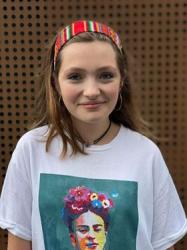
The results from Iceland’s first children’s assembly were presented to the Alþingi this morning, May 8th. The participants’ principal concerns were social inequality, the environment and excessive amounts of homework.
The children’s assembly was held in the Harpa concert hall in November last year. The two-day event was organised by the Children’s Ombudsman, Salvör Nordal, in order to give Icelandic children aged 11-15 a platform to discuss their concerns. The assembly is part of the agreement between Salvör and the Ministry for Social Affairs and Children to increase children’s participation in policy-making.
The assembly had several recommendations for improving the Icelandic schooling system. Perhaps unsurprisingly, participants called for less homework to be set and many were of the opinion that it should be banned entirely. Others suggested that schools stay open for an extra hour to provide pupils optional homework support. Adding sign language to the curriculum was another popular suggestion. School food also proved a hot topic—students wanted access to cheaper and higher quality food.
The assembly also discussed wider global challenges including the status of refugees and world peace. As Salvör noted in a press release, Iceland’s children have an impressively broad range of interests and concerns.
Participants were particularly concerned about equality both in Iceland and globally. They expressed the belief that all children have an equal right to education and a home. Equal pay for men and women, greater social tolerance and accessibility to all public spaces, including playgrounds, for disabled people were also highlighted as important goals.
Concerns about climate change and loss of biodiversity were raised by many participants. The assembly suggested that schools promote veganism, supermarkets reduce vegetable prices and gardening be added to the curriculum in order to reduce meat consumption. Bans on single-use plastics and environmentally-harmful industrial practices were also discussed.
Salvör thanked participants for their “active participation”, explaining that last year’s event had demonstrated “the importance of children being active participants in social dialogue.”
The next children’s assembly will be held in 2021.
Note: Due to the effect the Coronavirus is having on tourism in Iceland, it’s become increasingly difficult for the Grapevine to survive. If you enjoy our content and want to help the Grapevine’s journalists do things like eat and pay rent, please consider joining our High Five Club.
Buy subscriptions, t-shirts and more from our shop right here!

















